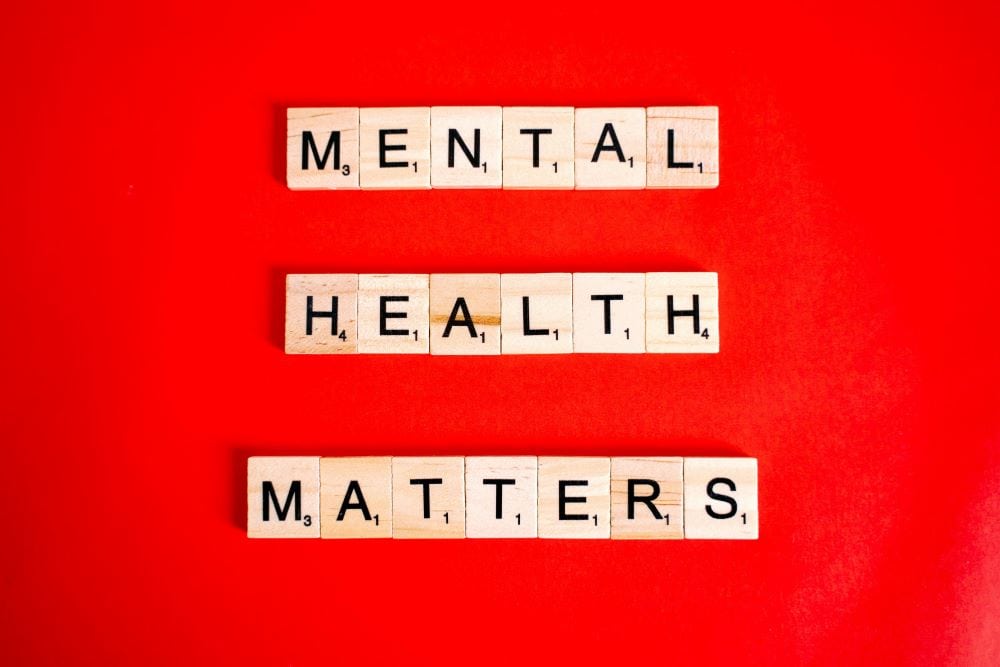The Importance of Mental Health: The Stigma Divide

Why Seeking Mental Health Support Should Be as Celebrated as Physical Fitness
The importance of mental health isn’t as widely accepted or even celebrated as is to seek help from dietitians and fitness trainers to improve physical health. Studies, such as those by Must & Strauss (1999) and Janz et al. (2000), have shown that healthy habits in diet and exercise established during childhood significantly influence long-term health outcomes, including reduced risks of obesity and chronic diseases. This proactive approach to physical health is seen as a positive and commendable action. So, what about the importance of mental health?
When it comes to the importance of mental health, the same enthusiasm and acceptance are not extended. Despite growing recognition of mental and emotional health’s critical role in overall well-being, seeking psychological support still carries a stigma. This attitude is not only outdated but also counterproductive to achieving comprehensive health.
Physical Health and the Pursuit of Excellence
The pursuit of physical health is well-supported by scientific evidence. For example, the work of Milagro et al. (2020) illustrates how nutrition and physical activity impact inflammation and long-term health through epigenetic mechanisms. Similarly, Hoffman et al. (2017) emphasize that early nutrition can modulate the body’s response to environmental toxins, highlighting the importance of a nutrient-rich diet from a young age. These studies collectively argue for the benefits of professional guidance in maintaining and improving physical health.
The Underappreciated Importance of Mental Health
Mental health is equally crucial. Research has shown that psychological interventions can significantly improve mental health outcomes. For instance, Wampold & Imel (2015) discuss the broad efficacy of psychotherapy, particularly the importance of the therapeutic relationship in achieving positive outcomes. Moreover, Grant (2014) and Kampa-Kokesch & Anderson (2001) provide evidence supporting the effectiveness of coaching in enhancing personal and professional development.
Despite this, many people are hesitant to seek psychological support due to societal stigma behind the importance of mental health. This reluctance is especially troubling given the evidence supporting the benefits of therapy and coaching for addressing issues like maladaptive coping strategies and improving overall life satisfaction.
Challenging the Stigma
The stigma associated with seeking mental health support is deeply ingrained and harmful. It discourages individuals from accessing necessary care, perpetuating cycles of mental distress. The benefits of psychotherapy and coaching are well-documented; Cuijpers et al. (2010) found that non-directive supportive therapy effectively treats depression, while De Haan & Duckworth (2013) highlight the role of coaching in enhancing self-efficacy and job performance.
A Call to Action
To foster a society that values comprehensive health, we must challenge the stigma surrounding the importance of mental health support. Just as we celebrate those who take steps to improve their physical health, we should equally commend those who seek to enhance their mental well-being. Recognizing the value of mental health professionals and encouraging open dialogue about mental health are crucial steps toward this goal.
Importance of Mental Health AND Physical Health
Mental and physical health are interdependent aspects of a complete, healthy life. By breaking down the stigma associated with seeking psychological support, we can promote a culture that values and supports the well-being of all individuals. It’s time to embrace mental health care as a normal, necessary, and inspiring part of life, just like maintaining physical fitness.
Ready to prioritize your mental well-being? Connect with our life coaching services to build resilience, clarity, and balance in all areas of life.
References
- Must, A., & Strauss, R. S. (1999). Risks and consequences of childhood and adolescent obesity. International Journal of Obesity and Related Metabolic Disorders, 23(S2), S2-S11. Link
- Janz, K. F., Dawson, J. D., & Mahoney, L. T. (2000). Tracking physical fitness and physical activity from childhood to adolescence: The Muscatine Study. Medicine & Science in Sports & Exercise, 32(7), 1250-1257. Link
- Milagro, F. I., et al. (2020). Epigenetic signatures underlying inflammation: an interplay of nutrition, physical activity, metabolic diseases, and environmental factors for personalized nutrition. PubMed. Link
- Hoffman, J. B., Petriello, M. C., & Hennig, B. (2017). Impact of nutrition on pollutant toxicity: an update with new insights into epigenetic regulation. Rev Environ Health, 32(1-2), 65-72. Link
- Raghuraman, S., Donkin, I., Versteyhe, S., Barrès, R., & Simar, D. (2016). The emerging role of epigenetics in inflammation and immunometabolism. Trends Endocrinol Metab, 27(11), 782-795. Link
- Wampold, B. E., & Imel, Z. E. (2015). The Great Psychotherapy Debate: The Evidence for What Makes Psychotherapy Work.
- Grant, A. M. (2014). The Efficacy of Executive Coaching in Times of Organisational Change. Journal of Change Management, 14(2), 258-280.
- Kampa-Kokesch, S., & Anderson, M. Z. (2001). Executive Coaching: A Comprehensive Review of the Literature. Consulting Psychology Journal: Practice and Research, 53(4), 205-228.
- Cuijpers, P., et al. (2010). The efficacy of non-directive supportive therapy for adult depression: A meta-analysis. Clinical Psychology Review, 30(4), 331-341.
- De Haan, E., & Duckworth, A. (2013). Signaling a new trend in executive coaching outcome research. Journal of Management Development, 32(3), 275-285.
Not Ready Yet?
Sign up for our Free Personal Development Course
